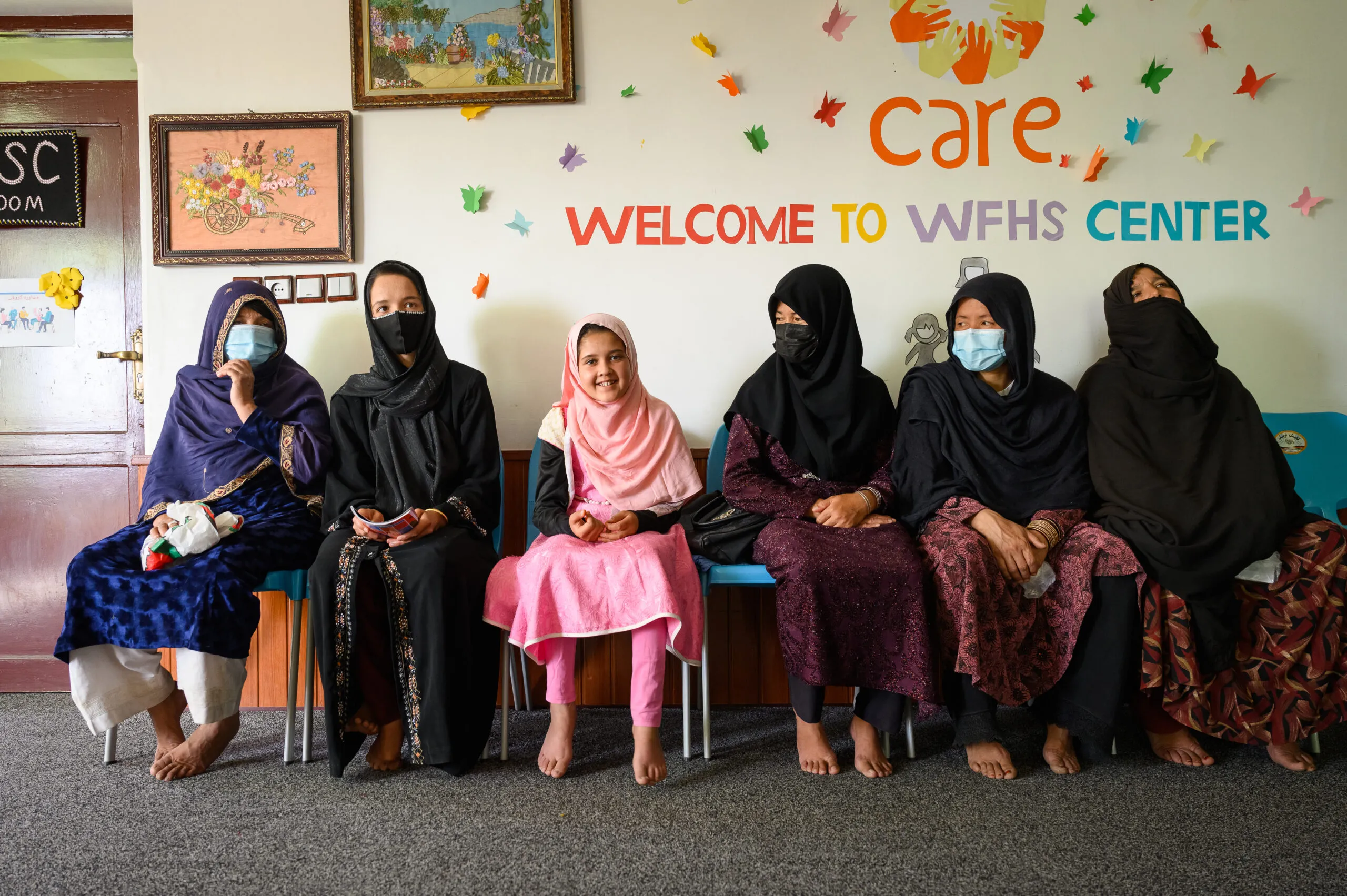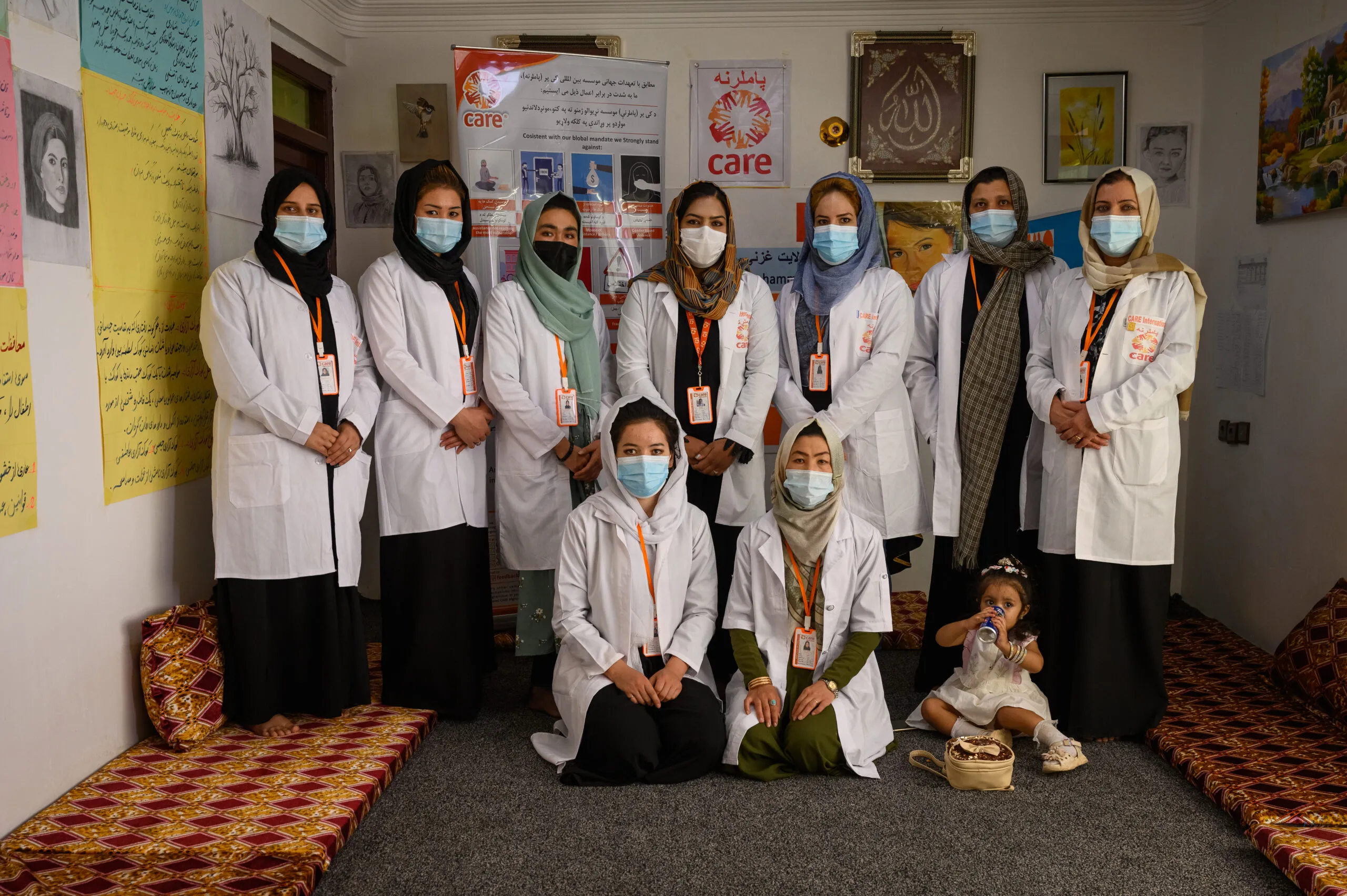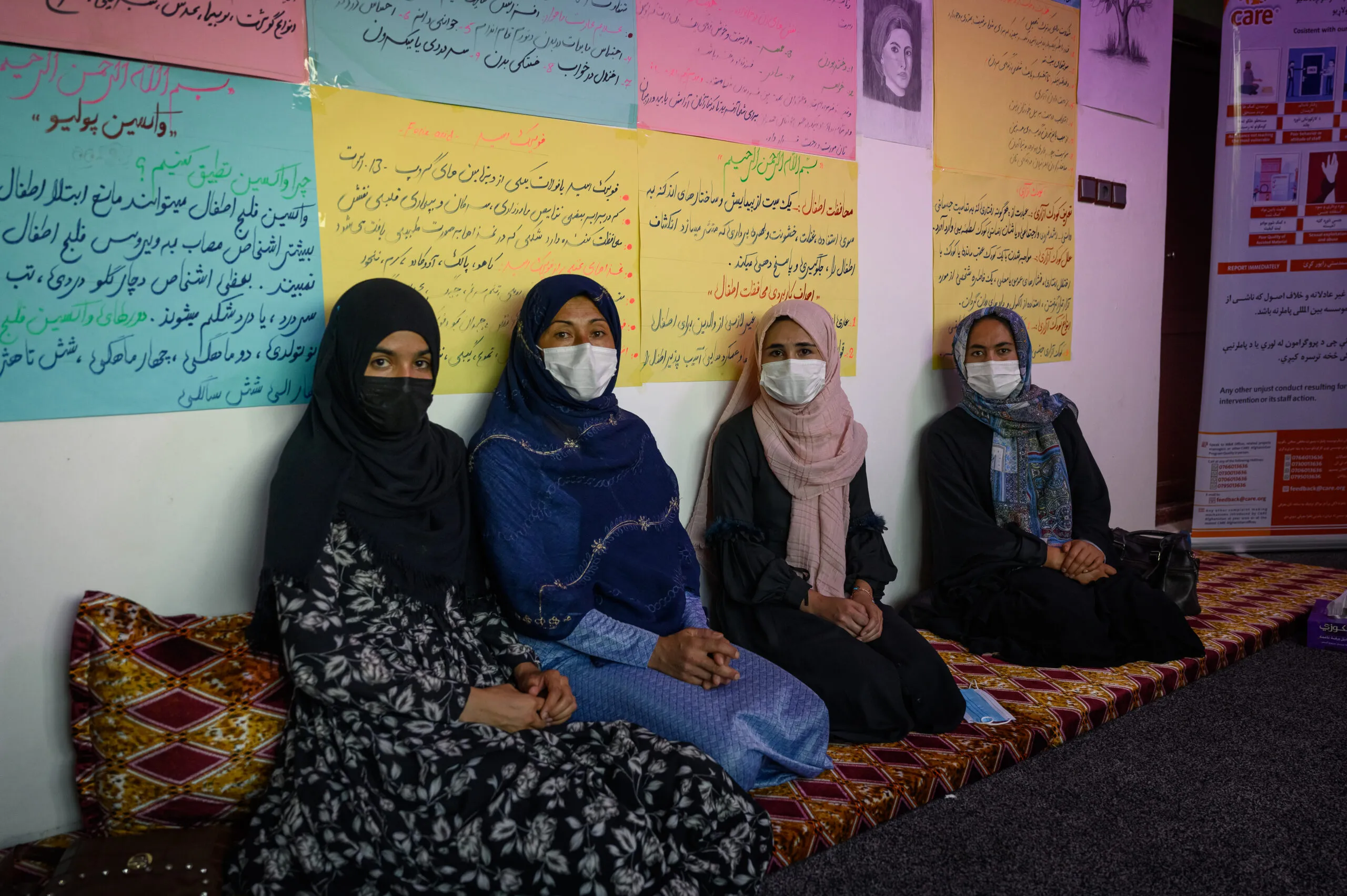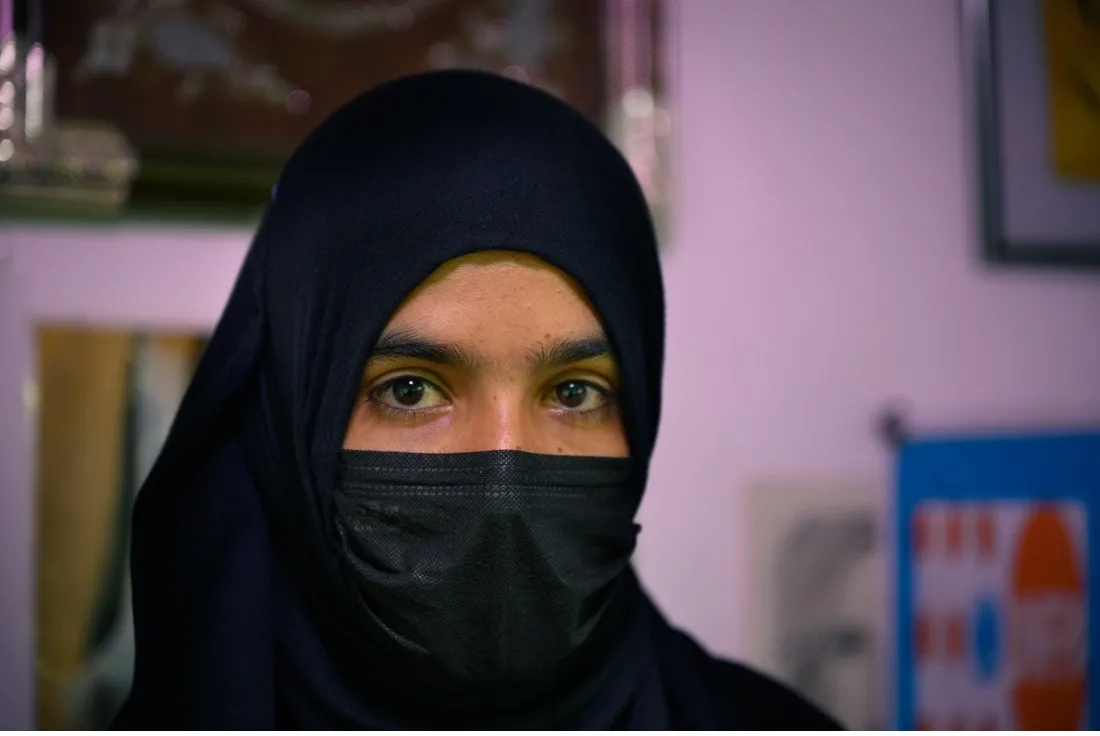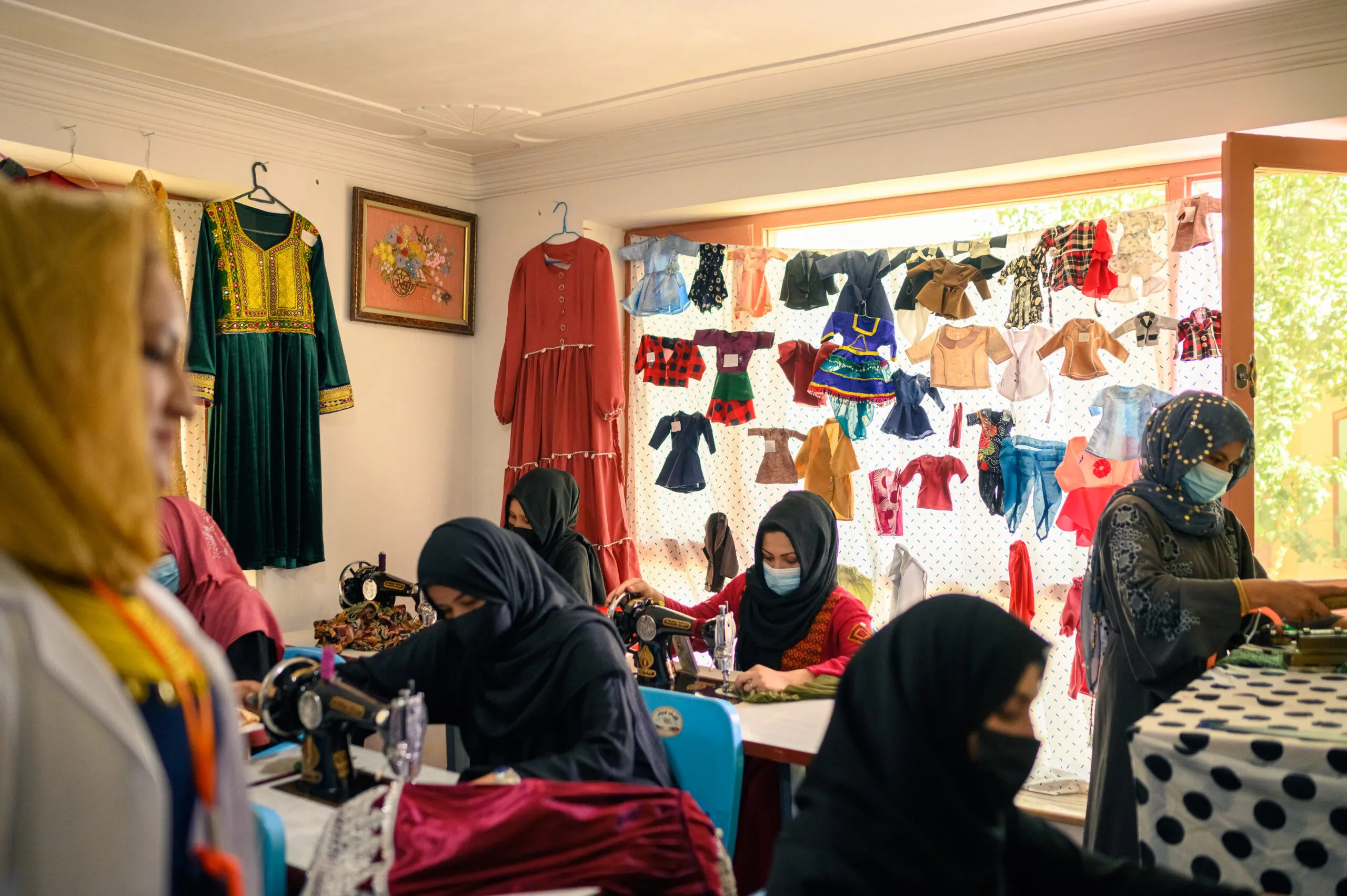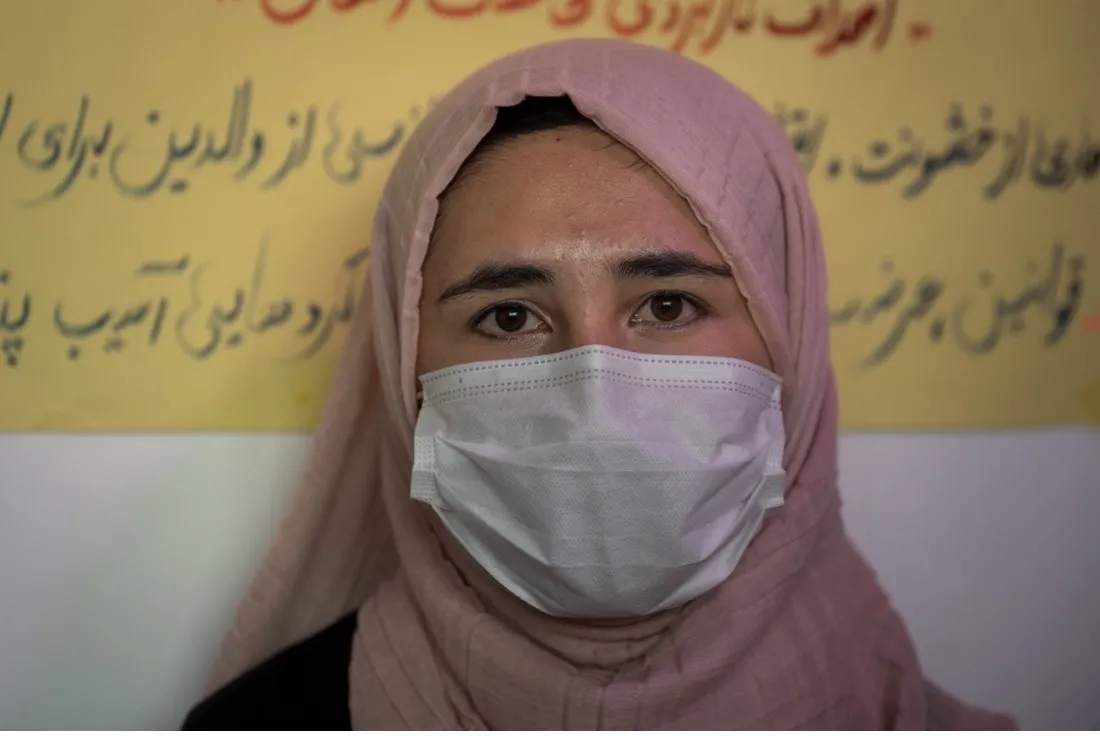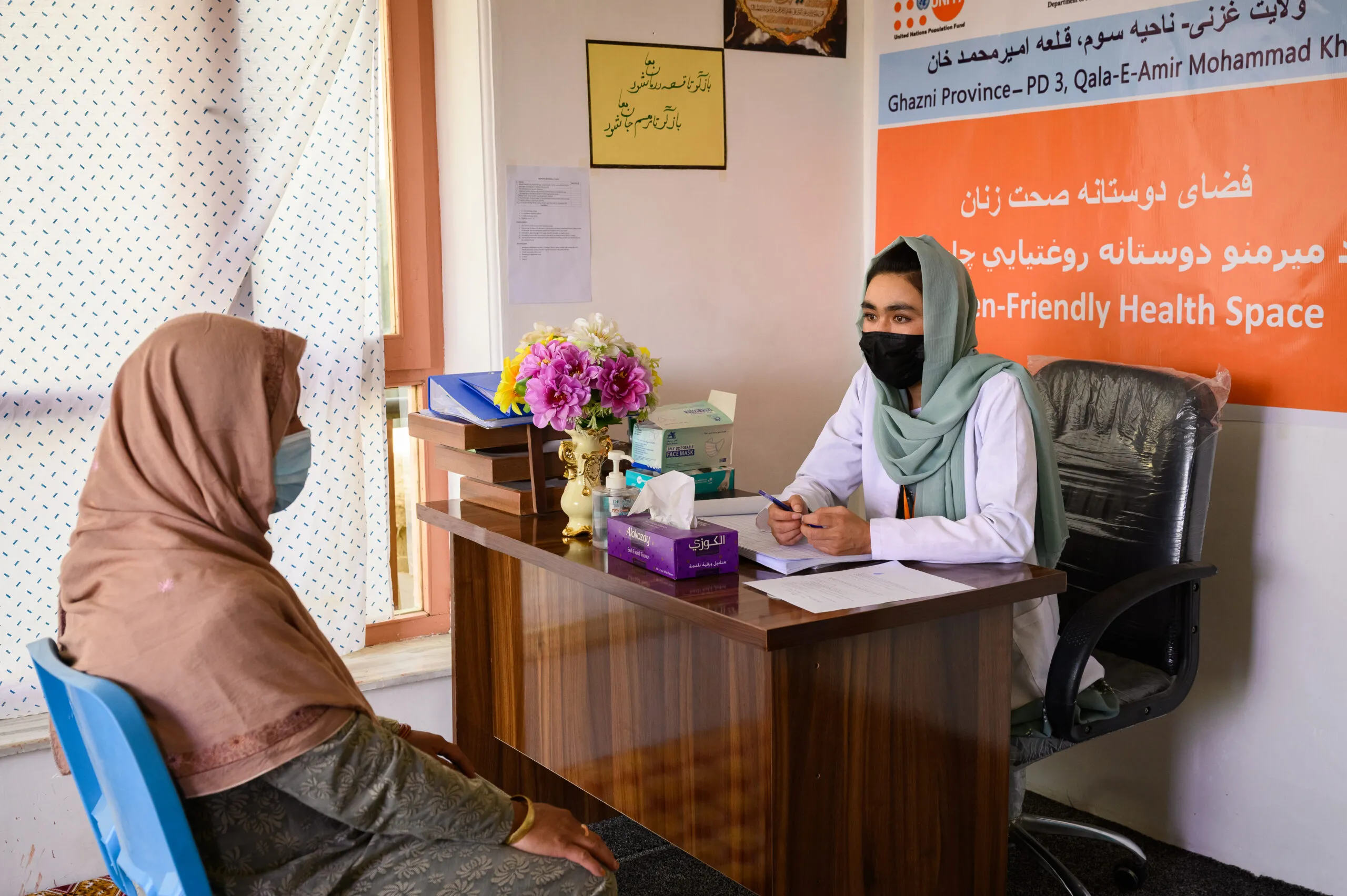I was met with warm handshakes, smiles, and hugs. I knew I’d just entered a sacred space. What I didn’t know was how much these women would soon open up and share with me.
Here, at CARE Ghazni’s Womens Friendly Health space, women and girls receive psychosocial support, prenatal educational courses with midwives, and they learn the trade of tailoring.
Out of all these services, perhaps one of the most valuable things these women receive is the support of their fellow community members.

